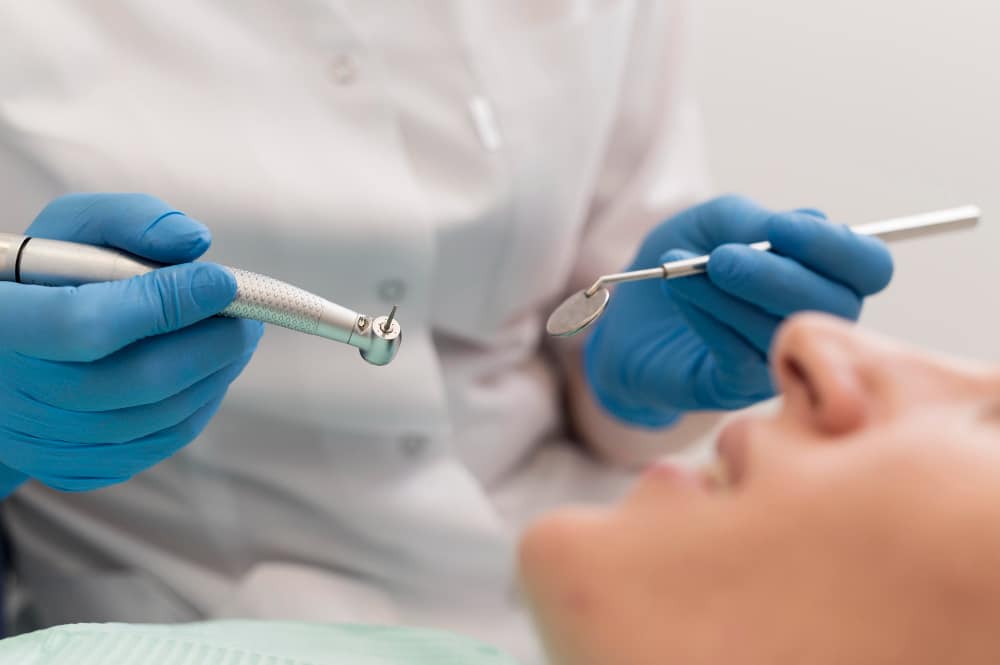Are you in need of oral or maxillofacial surgery, but not sure which specialist is the right one for your needs? In the world of oral healthcare, it’s important to understand the distinctions between maxillofacial jaw surgeons, oral surgeons, and dentists. Each of these professionals has their own expertise, training, and range of services, which can make a significant difference in the outcome of your treatment.
Maxillofacial jaw surgeons are highly specialized in the surgical correction of conditions affecting the jaw and facial bones. With extensive training and expertise, they are equipped to handle complex procedures such as orthognathic surgeries. On the other hand, oral surgeons focus on a broader range of surgical procedures, including dental extractions, implant placements, and corrective jaw surgeries.
Dentists, although not surgeons, play a vital role in maintaining oral health. They primarily focus on preventative care, diagnosing dental conditions, and providing general dental treatments such as fillings and cleanings.
Understanding the distinctions between these professionals will help you make an informed decision when seeking treatment for your specific needs. So, let’s delve deeper into the expertise, training, and services offered by maxillofacial jaw surgeons, oral surgeons, and dentists, to find the right specialist for you.
Differences in Education and Training
Education and training are crucial factors that differentiate maxillofacial jaw surgeons, oral surgeons, and dentists. Maxillofacial jaw surgeons undergo extensive education and training, making them highly specialized in their field. After completing dental school, they pursue an additional 4 to 6 years of residency training in oral and maxillofacial surgery. This comprehensive training includes rotations in various specialties such as anesthesia, general surgery, and plastic surgery.
Oral surgeons, on the other hand, also undergo significant education and training but have a broader scope of practice compared to maxillofacial jaw surgeons. After completing dental school, oral surgeons typically complete a 4 to 6-year residency program in oral and maxillofacial surgery. This training equips them with the necessary skills to perform a wide range of surgical procedures, including wisdom teeth extractions, dental implant placements, and corrective jaw surgeries.
Dentists, although not surgeons, also receive extensive education and training to provide general dental care. After completing a 4-year undergraduate degree, dentists must attend a 4-year dental school program. During dental school, they acquire knowledge and skills in diagnosing dental conditions, performing routine dental procedures, and providing preventative care. While dentists do not undergo the same surgical training as maxillofacial jaw surgeons or oral surgeons, they play a vital role in maintaining oral health and are often the first point of contact for patients.
Understanding the differences in education and training allows you to appreciate the level of expertise each professional possesses and better understand the range of services they can provide.
Expertise and Scope of Practice
The expertise and scope of practice of maxillofacial jaw surgeons, oral surgeons, and dentists differ based on their specialized training and focus. Maxillofacial jaw surgeons are highly skilled in the surgical correction of conditions affecting the jaw and facial bones. Their expertise lies in diagnosing and treating complex craniofacial abnormalities, temporomandibular joint disorders, facial trauma, and facial deformities. With their in-depth knowledge of the facial structures, they can perform intricate surgeries to improve both function and aesthetics.
Oral surgeons, while sharing some overlap in expertise with maxillofacial jaw surgeons, have a broader scope of practice. They are trained to perform a wide range of surgical procedures in the oral and maxillofacial region. This includes dental extractions, dental implant placements, bone grafting, facial trauma repairs, and corrective jaw surgeries. Oral surgeons often collaborate with other dental specialists and medical professionals to provide comprehensive care for patients with complex needs.
Dentists, on the other hand, focus on general dental care and preventative treatments. Their expertise lies in diagnosing dental conditions, performing routine dental procedures such as fillings and cleanings, and providing guidance on oral hygiene practices. Dentists play a crucial role in maintaining oral health and preventing the progression of dental diseases.
Understanding the expertise and scope of practice of each professional helps you determine who is best suited to address your specific oral healthcare needs.

Common Procedures Performed by Maxillofacial Jaw Surgeons
Maxillofacial jaw surgeons are skilled in performing a variety of complex surgical procedures to address conditions affecting the jaw and facial bones. Let’s explore some of the common procedures they perform:
- Orthognathic Surgery: Orthognathic surgery, also known as corrective jaw surgery, is a procedure performed to correct jaw abnormalities that can affect a person’s bite, speech, and facial appearance. Maxillofacial jaw surgeons use advanced techniques to reposition the upper and lower jaws, ensuring proper alignment and harmony between the teeth and facial structures.
- Temporomandibular Joint (TMJ) Surgery: TMJ disorders can cause pain, discomfort, and limited jaw movement. Maxillofacial jaw surgeons are trained to diagnose and treat these conditions through various surgical techniques. TMJ surgery may involve joint repair, joint replacement, or arthroscopy to alleviate pain and restore normal jaw function.
- Facial Trauma Surgery: Maxillofacial jaw surgeons are experts in treating facial fractures and facial trauma. They utilize their knowledge of the facial structures to accurately diagnose and surgically repair fractures, ensuring proper healing and restoration of facial aesthetics.
- Cleft Lip and Palate Repair: Cleft lip and palate are congenital conditions that require specialized surgical intervention. Maxillofacial jaw surgeons work closely with a multidisciplinary team to perform cleft lip and palate repair surgeries, improving speech, feeding, and overall quality of life for affected individuals.
These are just a few examples of the complex procedures that maxillofacial jaw surgeons are trained to perform. Their expertise in surgical intervention for conditions affecting the jaw and facial bones is invaluable in improving both function and aesthetics.
Common Procedures Performed by Oral Surgeons
Oral surgeons, also known as oral and maxillofacial surgeons, specialize in diagnosing and treating conditions related to the oral cavity, jaws, face, and neck. Their extensive training allows them to perform a wide range of surgical procedures to address complex oral health issues.
One of the most common procedures performed by oral surgeons is dental extraction. Whether it’s a wisdom tooth removal or a complex tooth extraction, oral surgeons have the expertise to safely and effectively remove teeth that cannot be easily extracted by a general dentist. They utilize advanced techniques and tools to ensure minimal discomfort and complications during the procedure.
In addition to dental extractions, oral surgeons are also skilled in placing dental implants. Dental implants are a popular and long-lasting solution for replacing missing teeth. Oral surgeons have the knowledge and expertise to assess the suitability of dental implants for each patient and perform the surgical placement of the implant into the jawbone. This procedure requires precision and an understanding of the underlying bone structure to ensure successful integration of the implant.
Oral surgeons are also trained to perform corrective jaw surgeries, also known as orthognathic surgeries. These procedures are typically done to correct jaw misalignments, which can cause issues with bite, speech, and facial aesthetics. Orthognathic surgeries involve repositioning the jawbones to achieve proper alignment and balance. Oral surgeons work closely with orthodontists to develop a comprehensive treatment plan and ensure optimal results.
In summary, oral surgeons are highly skilled in performing dental extractions, placing dental implants, and conducting corrective jaw surgeries. Their expertise extends beyond general dentistry, focusing on complex surgical procedures to address various oral health issues. If you require any of these specialized treatments, consulting an oral surgeon would be the appropriate course of action.
Common Procedures Performed by Dentists
While maxillofacial jaw surgeons and oral surgeons specialize in surgical interventions, dentists play a crucial role in maintaining overall oral health and providing general dental treatments. Dentists are typically the first point of contact for patients seeking routine check-ups, cleanings, and preventative care.
One of the primary focuses of dentists is preventative care. They educate patients on proper oral hygiene practices, provide regular dental cleanings, and perform dental examinations to detect and prevent dental issues. Dentists play a vital role in promoting good oral health habits and preventing the development of more serious dental conditions.
In addition to preventative care, dentists also offer a range of general dental treatments. This includes filling cavities, performing root canal treatments, and placing dental crowns. Dentists have the knowledge and skills to diagnose and treat common dental problems, such as tooth decay and gum disease. They utilize various techniques and materials to restore the function and aesthetics of a patient’s teeth.
Furthermore, dentists may also offer cosmetic dentistry services to enhance the appearance of a patient’s smile. This can include teeth whitening, veneers, and dental bonding. While these procedures are primarily focused on improving the aesthetics of the teeth, dentists ensure that the treatments are performed safely and do not compromise the overall oral health of the patient.
In summary, dentists provide essential preventative care, diagnose dental conditions, and offer a range of general dental treatments. They are skilled in maintaining oral health and addressing common dental issues. If you are in need of routine check-ups, cleanings, or general dental treatments, consulting a dentist would be the appropriate choice.

When to Seek Treatment from a Maxillofacial Jaw Surgeon
Maxillofacial jaw surgeons are highly specialized professionals who focus on surgical interventions related to the jaw and facial bones. They have undergone extensive training and possess advanced expertise in their field. Here are some situations where seeking treatment from a maxillofacial jaw surgeon would be necessary:
- Corrective Jaw Surgeries: If you have a severe jaw misalignment or a significant discrepancy in the size or position of your jaws, a maxillofacial jaw surgeon is the appropriate specialist to consult. They can assess your condition, develop a comprehensive treatment plan, and perform orthognathic surgery to correct the alignment and improve functionality.
- Facial Trauma: In the case of facial injuries resulting from accidents or other trauma, maxillofacial jaw surgeons are equipped to handle complex fractures and reconstructive procedures. They have the expertise to repair facial bones, restore facial aesthetics, and ensure proper healing.
- Impacted Wisdom Teeth: When wisdom teeth do not have enough space to emerge properly, they can become impacted and cause pain, infection, and other complications. Maxillofacial jaw surgeons are skilled in safely removing impacted wisdom teeth and managing any associated issues.
- Temporomandibular Joint (TMJ) Disorders: TMJ disorders can cause jaw pain, headaches, and difficulty in opening or closing the mouth. Maxillofacial jaw surgeons have a deep understanding of the temporomandibular joint and can offer various treatment options, including surgery, to alleviate the symptoms and improve jaw functionality.
It’s important to note that in some cases, a referral from a general dentist or oral surgeon may be required to consult with a maxillofacial jaw surgeon. This ensures that the appropriate specialist is involved in your treatment plan.
In conclusion, maxillofacial jaw surgeons specialize in complex surgical procedures related to the jaw and facial bones. From corrective jaw surgeries to facial trauma reconstruction, they possess the expertise and training to handle intricate cases. If you require specialized treatment for jaw-related conditions, consulting a maxillofacial jaw surgeon is recommended.
When to Seek Treatment from an Oral Surgeon
Maxillofacial jaw surgeons and oral surgeons are both trained in surgical procedures related to the mouth, jaw, and facial bones. However, there are certain cases where seeking treatment from an oral surgeon may be more appropriate.
- Complex Dental Extractions: If you have a severely impacted tooth or require the removal of multiple teeth, an oral surgeon is the specialist to consult. They have the expertise to perform complex extractions, including wisdom tooth removal, which may require surgical techniques like bone removal or sectioning of the tooth.
- Dental Implant Placement: Dental implants are a popular solution for replacing missing teeth. Oral surgeons are skilled in implant placement, ensuring precise positioning and proper integration with the jawbone. They can also address any potential complications, such as bone grafting, if necessary.
- Corrective Jaw Surgery: In cases where the jaw is misaligned or facial asymmetry is present, an oral surgeon can perform corrective jaw surgery. This procedure, also known as orthognathic surgery, involves repositioning the jaw to improve function and aesthetics. It requires careful planning and expertise, making an oral surgeon the ideal choice for this type of procedure.
By seeking treatment from an oral surgeon for these specific cases, you can ensure that you receive the specialized care and expertise needed for a successful outcome. Remember, they are trained in a wide range of surgical procedures that go beyond the scope of general dentistry.
When to Seek Treatment from a Dentist
While maxillofacial jaw surgeons and oral surgeons focus on surgical interventions, dentists play a crucial role in maintaining oral health and providing general dental treatments. Here are several situations where seeking treatment from a dentist is appropriate:
- Preventative Care: Regular dental check-ups and cleanings are essential for maintaining good oral health. Dentists are equipped to perform thorough examinations, identify early signs of dental problems, and provide preventive treatments such as dental cleanings and fluoride applications.
- Dental Fillings and Restorations: Dentists are skilled in diagnosing and treating dental cavities. If you have a cavity or require a dental restoration like a filling, a dentist is the professional to see. They will use their expertise to ensure the decayed or damaged tooth is properly restored, preventing further complications.
- Teeth Whitening and Cosmetic Dentistry: Dentists also offer cosmetic dental treatments to enhance the appearance of your smile. Whether you’re interested in teeth whitening, veneers, or dental bonding, a dentist can provide these services to help you achieve the smile of your dreams.
- General Dentistry: Dentists offer a wide range of general dental treatments, including tooth extractions (non-surgical), root canal therapy, gum disease treatment, and dentures. They are your go-to professionals for addressing common dental issues and maintaining overall oral health.
By seeking treatment from a dentist, you can benefit from their expertise in general dental care and preventive measures. Regular visits to a dentist are essential for maintaining oral health and catching any potential issues before they become more serious.
Conclusion: Choosing the Right Professional for Your Oral Health Needs
In the world of oral healthcare, it’s important to understand the distinctions between maxillofacial jaw surgeons, oral surgeons, and dentists. Each of these professionals has their own expertise, training, and range of services, which can significantly impact your treatment outcome.
Maxillofacial jaw surgeons possess specialized training in surgical correction of the jaw and facial bones. They excel in complex procedures, such as orthognathic surgeries, and are the go-to specialists for addressing intricate jaw-related issues.
Oral surgeons, on the other hand, have a broader scope of surgical procedures, including dental extractions, implant placements, and corrective jaw surgeries. They are skilled in a wide range of surgical interventions and can handle complex cases beyond the realm of general dentistry.
Dentists, although not surgeons, are essential for maintaining overall oral health. They focus on preventative care, diagnosing dental conditions, and providing general dental treatments such as fillings and cleanings. Regular visits to a dentist are crucial for preventive measures and catching dental issues early on.
When seeking treatment, it’s important to consider the specific needs of your oral health condition and choose the right professional accordingly. Whether it’s an oral surgeon, maxillofacial jaw surgeon, or dentist, each specialist brings their own expertise to the table. By understanding these distinctions, you can make an informed decision and receive the best possible care for your oral health needs.






